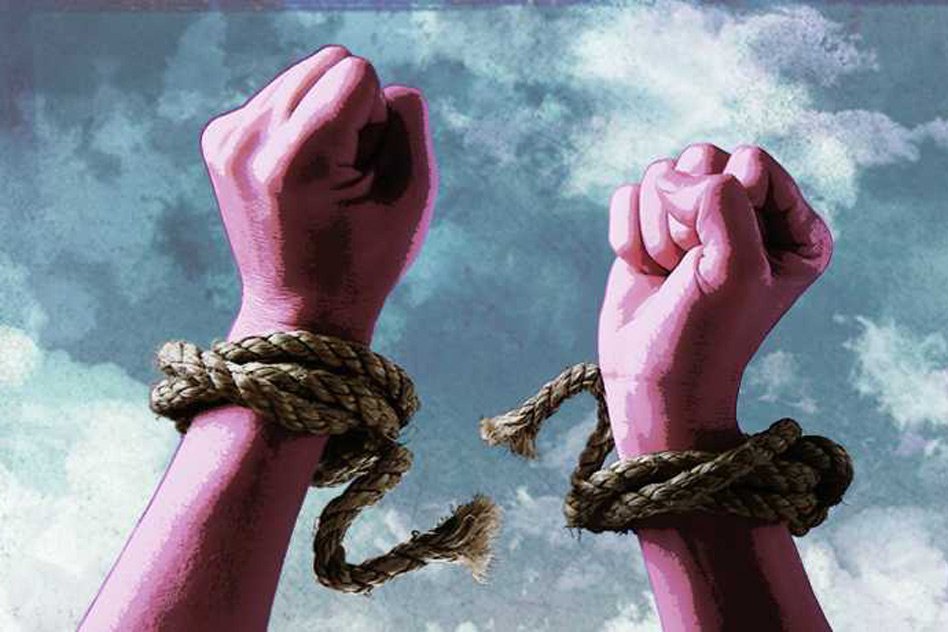Reported By Shriya Mohan @ShriyaMohan | Originally published on catchnews | Image Source: ICD/ CATCH NEWS
The charter
The Delhi Dialogue Commission, an advisory body, has drawn up a women’s rights charter
It has some of the most progressive points ever made in a charter drawn up by the establishment
The highlights
‘Every woman shall be entitled to the right to exercise complete autonomy in personal relationships’
‘Every woman, irrespective of her sexual orientation, shall have the right to equality before the law’
‘Every woman, irrespective of her marital status, shall have access to adequate housing/shelter’
More in the story
How the charter looks to empower the DCW
At the same time, the emphasis is on gender-sensitisation, not punishment
It’s a city whose reputation takes a beating every time the topic of women’s safety comes up anywhere in the country. ‘Delhi is not safe’, ‘Delhi is the rape capital’.
Agreed.
But the good news is that later this month, Delhi may get to see one of the most progressive charters brought out by the establishment in the history of India.
There’s a new women’s rights charter on its way, and it guarantees you protection if you:
- Are a single woman looking for housing, frustrated at being turned down by every landlord
- Are a gay couple wanting to live together and your family is causing you grief
- Are a divorcee fighting for your share of property; or
- Have been sexually abused by a member of your family and are looking to protect yourself without having the abuser arrested and imprisoned.
The outline
The Delhi Dialogue Commission (DDC), an advisory body to the Delhi government, came up with a draft charter of women’s rights in August this year. The charter then opened for a month-long process of public consultation that closed in September.
The final draft, being written now, is finally expected to be discussed during the winter session of the Delhi Assembly.
The aim was to bring in a holistic piece of legislation that women in the capital could use to protect themselves against everyday gender discrimination and abuse they face in the city.
Ashish Khetan, a prominent leader of the ruling Aam Aadmi Party and vice-chairman of the DDC, had said in August: “This is a first-of-its-kind law which a state government will propose before the people. We have incorporated all the recommendations of the Justice JS Verma committee, along with some expanded rights.”
The main points
Here are some of the most progressive rights listed for Delhi’s women under the charter’s draft:
- Every woman shall be entitled to the right to exercise complete autonomy in personal relationships, including with respect to her choice of partners.
- Every woman shall be protected from all forms of violence, whether the violence takes place in private or public, including unwanted or forced sexual intercourse or activity.
- The State shall promptly provide effective mechanisms and accessible services for information, redressal, rehabilitation and reparation of every woman being a survivor of violence.
- The State shall ensure protection to every woman whose right to freedom of thought, conscience, religion, and belief, including the right to adopt, convert, and to hold opinions without interference is interfered with.
- Every woman, irrespective of her sexual orientation, shall have the right to equality before the law and equal protection of all the laws.
- Every woman shall have the right to equal opportunity in matters of public or private employment.
- Every woman, irrespective of her marital status, shall have access to adequate housing/shelter
- Every woman shall have access to public transport facilities, without fear of the risk of violation of her dignity in any form by means of teasing, molestation, stalking or any other form of intimidatory behaviour.
Will it do any good?
But does Delhi need another charter? Who’s going to abide by it?
What the charter does is to make the Delhi Commission for Women (DCW) the one body that guarantees physical, social, religious, cultural, economic and psychological safety and well being for women from all walks of life.
According to Swati Maliwal, Chairperson of the DCW, the charter gives the DCW binding powers. “What we’re asking for is essentially two things: the right to issue orders, and the power to penalise parties for not implementing orders. Suppose in my recent visit to Delhi’s night shelters I find problems, the DCW’s orders should not just be recommendatory, like they are now. They should be binding.”
The charter has been drawn up by the Delhi Dialogue Commission. The AAP govt’s nod is expected soon
Sarim Naved, a lawyer with the DDC who worked closely on drafting the charter says: “The DCW currently ensures everything – from fair treatment at the workplace, at home and safety on the streets. But its powers are non-existent. Apart from writing letters to government departments, the DCW can’t do anything. The charter aims to change that.”
Sensitise first, penalise last
The aim of the charter, however, is to not penalise straightaway, but to engage, gender-sensitise, mediate and create dialogue to ensure better understanding.
“If you penalise everything, it defeats the purpose. That a father or a husband will be put behind bars for gender crimes is ensuring that a woman is ultimately disempowered, because it takes a lot more courage to exercise the law in cases where it penalises,” says Nawed.
“So the idea behind this charter is to use the Verma committee annexure as a starting point, a charter which we all stand behind and actualise. If you’re harassed by bureaucratic government delays in compensation and justice, the DCW would be the one commission that fights your battle,” says Nawed.
Maliwal adds: “To make these changes possible would need simultaneous amendments in other acts. These changes need to be worked on.”
Orders to prosecute are only the final option, a button to be pressed when all other modes of communication and dialogue fail.
The charter sure sounds amazing, but what legal validity will it have? Would the Delhi Police comply? Would it have the Home Ministry’s stamp of approval? “They’ll have to,” says Nawed.
That, however, given the complicated Centre-state politics in Delhi, might be hard to take for granted.
As a final wish from 2015, Delhiites can only hope that in the interests of women’s safety, intent will trump petty politics.
For more such stories visit Catchnews.com











